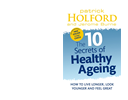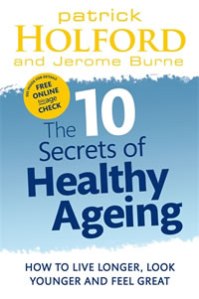New and more powerful cholesterol-lowering drugs are on the way. But are they the life-saving breakthrough enthusiastic news stories have been suggesting? The latest post on HealthInsightUK.org tells how there is no evidence yet that they do anything other than lower cholesterol. But is that enough to keep you safe from heart disease?
According to seasoned statin watcher Dr Malcolm Kendrick almost certainly not. The major trial that was supposed to prove this once and for all, which involved 18,ooo people and went on for six years, only managed to squeeze out tiniest benefit. Read his back story on what has really been going on in what promises to be the next battle of the blockbusters. Son of statins: how the new arrivals narrowly missed disaster. Fifty people would have to take the drug involved for six years for one to benefit.
Among the other revelations is one about how common side effects from statins are. You may remember this was at the heart of a heated debate over statins in the summer. In fact senior statin researcher laid into researchers and the British Medical Journal for suggesting they might be higher than his research suggested.
His research using commercial trials found it was around 1% while the other researchers and clinicians claimed it was close to 20%. But with a new breed of cholesterol lowering drugs on the way experts are saying that the number of “statin intolerant” people showing up at a top clinic in the US is way above even that.
For instance Dr Patrick Moriarty director of clinical pharmacology at the University of Kansas Medical Center told the journal Cardiovascular Business last month that as many as half of the patients who present at his clinic are statin intolerant.



Whether accidentally or opportunistically, certain memes become currency when they have no proven basis – such as high cholesterol and saturated fat being associated with heart disease. As long as false claims are regarded as science, the ranks of health professionals align in conformity – unless their personal ‘scientific’ faculties alert them to evidences and logic that doesn’t need pharmaceutical company trials – (whose full data is never freely available for scrutiny) – to pay attention to and use. Cholesterol is essential for Life – and brain function. It isn’t the villain it has been theorized to be. Interfering with cholesterol synthesis in the body is messing with a range of pathways that are part of healthy function. S.Seneff has very interesting perspectives worthy of considering in my view.
While focusing on psychpharma drugs, “Anatomy of an Epidemic” reveals the corruptions and distortions of all pharmaceuticals. The bad news is that integrity and trust is lost – the good news is that as that truth is accepted, it can be renewed as the basis of honest communications rather than coercive dictates from experts who present themselves as the Voice for Science itself and thus beyond challenge as the Establishment of determining truth rather than sharing in a willingness to uncover it.
Maybe what is needed is a campaign to try to require doctors to have to explain and state the NNT for every long term prescription. I think that armed with that information, a lot of people might decide their medication wasn’t worth the risks – and maybe more doctors would question the wisdom of prescribing medicine on such a basis.
Everyone seems to have forgotten the US CDC and NHBLI claim of a CONGESTIVE HEART FAILURE epidemic that was rapidly removed from both web sites when it was obvious that this epidemic was increasing with the increasing sale and use of cholesterol lowering drugs.
A rising epidemic suddenly disappears? Unbelievable; epidemics rise, peak and then decline. They do not simply disappear. For a time the details could be found on thinkquest.com but have recently been archived but so far I have been unable to locate the archive.
I have appended a part copy of the original document
Hope this will be of some use to you.
M. J. Hope Cawdery, BA(Hons), BSc(vet), DSc (vet.med), MRCVS, DAPE
________________________________